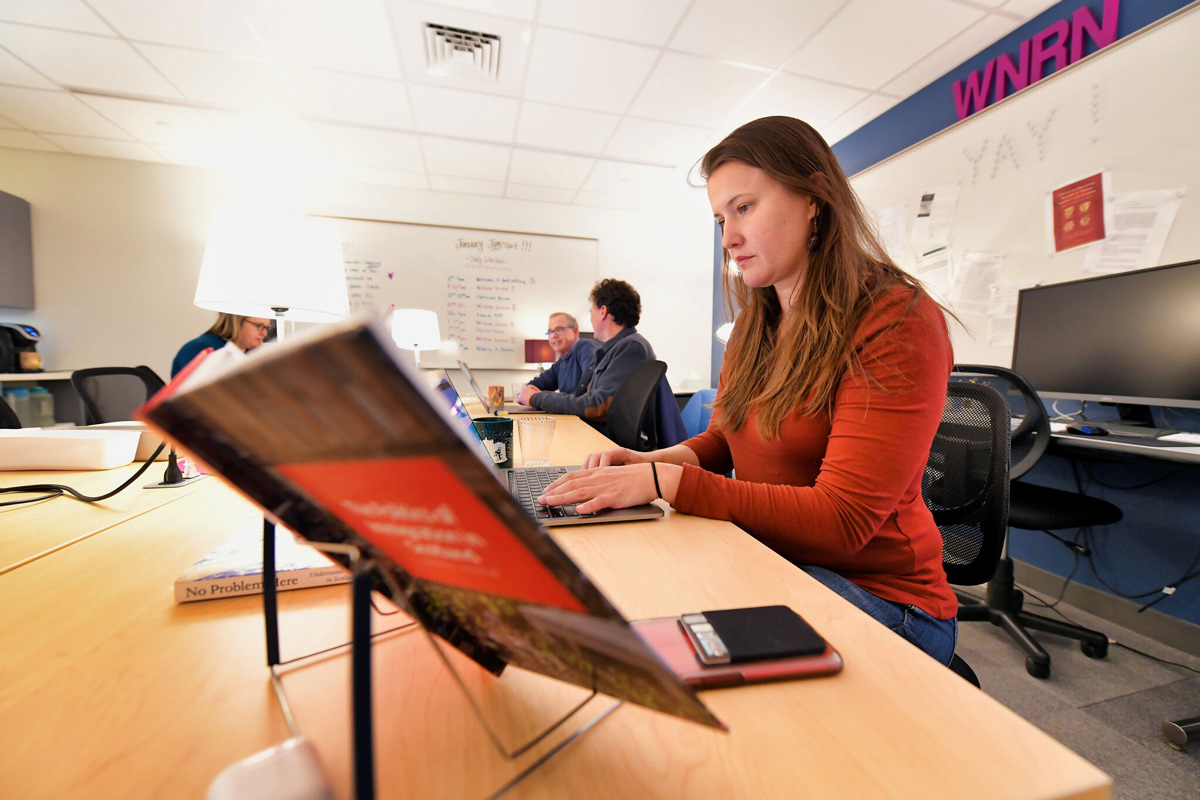Professor Aubrey Westfall named Fulbright Research Chair

Will begin comparative project on migrant belonging amid federal conflict over immigration
As nations grapple with immigration challenges, Wheaton College Professor of Political Science Aubrey Westfall is embarking on a five-year comparative project to study migrants’ belonging among four leading countries.
Appointed as the Fulbright Research Chair in North American Politics at Carleton University in Ottawa, Westfall will spend the spring 2025 semester at the Canadian institution, studying the country’s immigration policies and treatment of migrants.
Over the next five academic years, Westfall aims to conduct similar research in the United States, the United Kingdom and Australia. She has plans to write and submit a book proposal and draft a book manuscript about her findings.
“For each country, the questions are the same, addressing the overarching question of how migrants are making sense in these contexts of conflict between state or provincial and federal immigration policy,” said Westfall.
“Canada basically lets their provinces influence migrant selection. It would be like if the United States enabled the state of Texas to choose which migrants are allowed to cross the border. That’s what Canada does,” she added. “Historically, the provinces have used this power to try to make their territories look more attractive to attract more migrants to fill skills shortages.”
For instance, Westfall shared, the Québec government has passed French-style immigration restrictions to privilege French-speaking migrants, while the federal immigration policy is more open to immigrants.
“I’m interested in learning about whether immigrants understand this policy and how it affects their sense of belonging in Canada,” said Westfall. “In Québec, how are migrant advocates talking to migrants about this? What suggestions do they have regarding interacting with the provincial versus the federal government?
For the study of each country, Westfall plans to complete research design and statistical analysis, then present her findings at a conference. She will then author an empirical paper, submit it to a journal, and conduct interviews and on-site research in each location.
“I hope that my results will help inform policy in each country,” she said.
Westfall holds an M.A. and Ph.D. in political science from the University of Colorado, and currently chairs Wheaton’s Department of Society and Politics.
She was recently awarded the William and Elsie Prentice Professorship from the college, for tenured faculty members with outstanding teaching credentials.
Westfall has published two books. Her most recent work, The Politics of Immigration in Scotland (2022), revealed that Scotland wants its own migration policy in order to be more welcoming, in stark contrast to the closed policies of Québec.
“I made an argument about how nationalism can be used to justify pro-immigrant policies in Scotland,” she explained. “I made recommendations for how you can marry nationalism and nationalistic sentiment with pro-diversity and multicultural values.”
Although Westfall is still planning her current project, she believes that it will reveal one of two options. “I believe that we’ll see mobilization toward protest or demobilization out of a sense of feeling marginalized in this context, where the province is more restrictive than the federal government. I think my policy recommendations would highlight the consequences of these kinds of exclusionary policies for migrant belonging for community cohesion, especially in a country of immigrants.”
